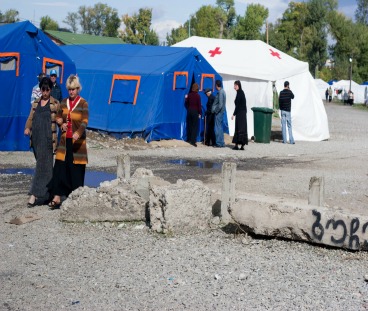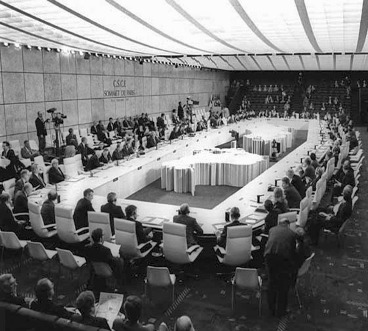Mr. Chairman, I rise in strong support of the Kaptur amendment which would create a floor rather than a ceiling for the level of funding to the U.S. assistance to Ukraine. The level of funding provided for assistance to Ukraine, as has been pointed out, $125 million, is not insignificant. However, it does represent a precipitous $44 million reduction from last year, the 2001 level of $169 million. I share the concerns about some of the recent developments in the Ukraine which are raised in the report language, including the unresolved deaths of Ukrainian journalists. In fact, I was the first Member to express concerns about murdered journalist Georgiy Gongadze following his disappearance last September. In May, the Helsinki Commission, which I co-chair, held a hearing devoted exclusively to the situation in Ukraine. Clearly the downward trends and negative developments in Ukraine were enumerated, and the leadership of Ukraine was strongly encouraged to demonstrate in word, and as the chairman pointed out, in deed as well, greater respect for human rights and the rule of law.
Mr. Chairman, 2 weeks ago I co-chaired the U.S. delegation to the OSCE Parliamentary Assembly in Paris. One of the most moving and most powerful moments of that entire meeting was Mrs. Gongadze’s acceptance of the OSCE Prize for Journalism and Democracy on behalf of her murdered husband. And as the gentlewoman pointed out, she has called on this body not to cut this funding. While we were troubled by the developments in the Ukraine, including the situation of the media and the April ouster of Ukraine’s reformist Prime Minister, we cannot deny the positive developments either. These include for the first time in over a decade strong economic growth, continued good relations with her neighbors, and a cooperative partnership with the West, especially the United States. Now is not the time to cut assistance. Ukraine still has tremendous needs. For example, the Chernobyl power plant was shut down last December, but the consequences of that nuclear disaster still leaves an indelible mark on the Ukrainian nation. They need continued assistance in overcoming this devastating legacy, especially its toll in cancer and other serious illnesses. Ukraine’s weak medical infrastructure still faces considerable challenges, such as the growing AIDS problem.
As the gentlewoman from Ohio (Ms. Kaptur) pointed out, very little of our assistance benefits directly the Ukrainian government. Instead, it goes to programs that help NGOs and the independent media or municipal and small business development. With the parliamentary elections approaching next March, NGOs, political parties and reform-oriented local governments working to strengthen democracy in Ukraine need our support, as does the independent media.
Finally, Mr. Chairman, in his address at Warsaw University during his visit to Poland last month, President Bush stated, “The Europe we are building must include Ukraine, a nation struggling with the trauma of transition. Some in Kyiv speak of their country’s European destiny. If this is their aspiration, we should reward it.” Mr. Chairman, I hope the gentlewoman’s amendment is adopted as this work-in-progress makes its way through the House and conference.






